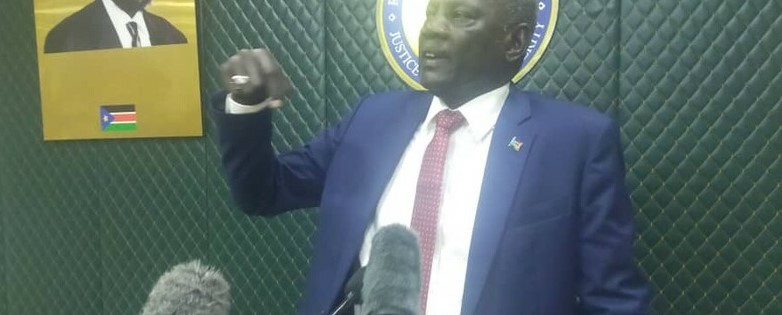South Sudan’s information minister has announced that the cabinet has approved the cleaning and clearing of rivers to allow the free flow of water in a bid to mitigate floods in the country.
Minister Michael Miakuei while addressing journalists after a lengthy extraordinary meeting chaired by President Salva Kiir, said the exercise will be done after thorough studies have been conducted.
He said most of the rivers in the country are blocked causing floods.
According to the United Nations Office for the Coordination of Humanitarian Affairs (OCHA), more than 900,000 people have been impacted by floods in 29 counties across South Sudan and the southern part of the Abyei Administrative Area this year.
“It is worth mentioning that because of sedimentation almost the whole of South Sudan is now under water because some of the rivers are completely blocked so the water is flowing out of the river so these weeds have to be removed so that the water can take the normal way,” Makuei said.
In July, South Sudanese took to social media to oppose plans by the government to dredge the Naam River in Unity State, saying the impact will be massive on the aquatic life. President Kiir then intervened by suspending all clearing and dredging in the country until an environmental impact assessment is conducted.
Makuei said the public reaction to the dredging of the rivers by the government was misunderstood by the general public.
He stressed that the government is developing a five years strategic plan on how communities living in the flood-affected area can be helped to develop resilience and live with the water.
“We can even relocate some of them in the areas completely affected to even the least higher grounds where you can accommodate people, those who are there and capable of staying with the water can be allowed,” Makuei said. “Meanwhile, they could be given other means of subsistence with the water like if you have decided to live with the water I must have a mosquito net, I must have something for fishing.”
Kitgwang fighting in Upper Nile
Relatedly, the cabinet condemned the violence in Upper Nile State between the Kitgwang rebel faction led by renegade Johnson Olony and Simon Gatwech Dual.
Makuei said the ministers decided to refer the issue of the rebel movement to be handled by the presidency.
“The cabinet decided to condemn all that is happening over there and call upon all the parties to cease hostilities and come to their senses so that peace can prevail in South Sudan,” he said. “The cabinet decided that this issue is complex and passed it to the presidency to seek a further solution.”




